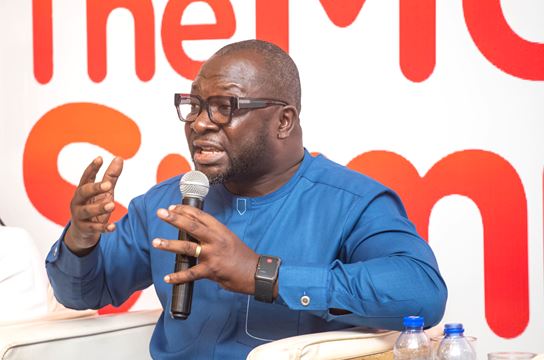Mr. John Awuah, Chief Executive Officer (CEO)-Ghana Association of Banks (GAB), wants a more robust legal framework to address loan defaults.
According to him, persistent challenges with loan recovery continue to undermine the financial sector’s ability to lend freely – contributing to higher interest rates and a constrained credit environment, especially for individuals and businesses that need the facilities most.
Mr. Awuah argues that defaulters must face stringent consequences to deter others from exploiting loopholes in the judicial system. These concerns come at a time when private sector credit, despite modest recovery, is yet to reach its pre-2022 macroeconomic crisis levels.
The Bank of Ghana’s Monetary Policy Committee (MPC) – in its statement following the 122nd meeting on January 27 – noted that nominal private sector credit growth increased to 26.3 percent in December 2024 compared to 10.7 percent in December 2023.
The industry’s Non-Performing Loans (NPL) ratio remains a pressing issue, rising to 21.8 percent in December 2024 from 20.6 percent a year earlier.
Mr. Awuah described this as a major concern, explaining that high impairments discourage lending and weaken banks’ ability to support economic growth. The situation, he added, is exacerbated by systemic weaknesses that make loan recovery a lengthy and often futile process.
To address these challenges, GAB’s CEO said the Association has been working closely with the judiciary to ensure that judges have a comprehensive understanding of financial and banking matters.
The Association, in collaboration with the Judicial Training Institute, has conducted training programmes for judges including those at the Commercial Courts, the Court of Appeal and the Supreme Court.
As part of broader judicial reforms, GAB has also played a key role in reviving the Court Users’ Committee, a platform that brings together judges, lawyers, banks and businesses to discuss ways of streamlining the judicial process for financial cases.
“We want a system where banks can recover funds on time and reinvest them in the economy instead of waiting years for legal resolutions,” he emphasised.
Ghana’s financial sector continues to grapple with a weak credit culture that makes lending risky; unlike in other jurisdictions where a borrower’s financial behaviour is fully documented, Ghana lacks a robust credit scoring system.










